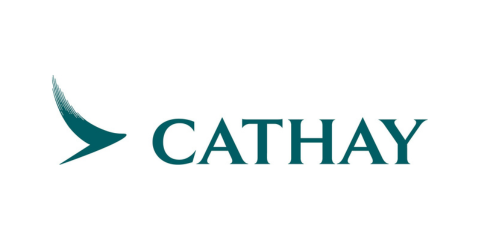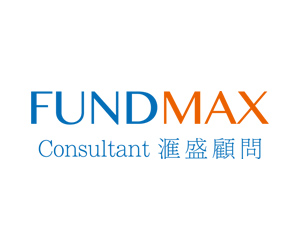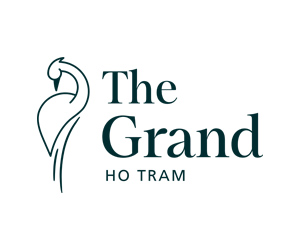Want to be in the loop?
subscribe to
our notification
Business News
VIETNAMESE PROPERTY REMAINS SAFE HAVEN FOR FOREIGN INVESTORS: SAVILLS VIETNAM
Foreign investors are still interested in the Vietnamese property market, which will remain a safe haven for them in the short term, according to Troy Griffiths, Deputy Managing Director at Savills Vietnam.
“(Vietnam’s) strong macro economy has supported positive domestic growth, and foreign direct investment continues strongly. It has been a very healthy start to 2018, with solid performance across all asset classes,” Griffiths said in a report titled “Savills Vietnam: Real estate market insight in 1H2018” released on July 3.
True demand from foreign investors
The historical quantitative easing (QE) environment has meant that returns across the region have been very low. As QE eases, emerging markets may come under pressure, particularly currencies.
Merger and acquisition activity across the region has been hectic. The listed market has been particularly active, with over US$1 billion in initial public offerings in the first quarter of this year, according to Savills Vietnam.
The Hochiminh Stock Exchange index has recently taken a breather, but there is still a strong pipeline of property listings to come in the near term. Historically, there have been very few listed property stocks, the report continued.
Although they bring much needed liquidity for investors, there has been a massive distrust in valuations. Good governance, progressive accounting standards and a maturing stock market will find broad appeal for foreign investors in listed property stocks, it added.
Overall, Vietnamese property returns are generally higher than its regional peers. Rental yields across most asset classes are reasonable, and with capital gain factored in, total returns are competitively high. With “country risk” rapidly diminishing, foreign capital is being lured to the Southeast Asian nation, the report pointed out.
“Vietnam is well positioned to leapfrog traditional markets through financial technology platforms that could have great benefit to property markets,” Griffiths noted.
Without legacy systems and with a young, savvy and ambitious startup culture, opportunities to embrace technological advancement are strong. The government has a raft of initiatives, decrees and circulars to support this; however, the competition from regional peers is immense, he continued.
“It will be interesting to see the region’s reaction to the QE easing and Fed interest rate rises, off the back of the improvement in the American economy. This has the potential to push capital into property.”
Of greater local interest is the strength of the Vietnamese domestic economy continuing to support demand for residential products in particular, which in turn fuels much of the broader economy.
Good governance seems set to further promote better and more effective business and foreign trade that will assist the commercial sectors. In the greatest age of domestic travel, hospitality projects are expected to continue to do well.
Domination of residential market in HCMC
Between 2013 and 2017, the apartment market in HCMC saw an average increase in apartment prices of some 9% per year, according to Savills Vietnam.
High urbanization rates and infrastructure development in the city strongly contributed to the overall improvement. Government policies have also led to a steady supply of apartments and a relatively stable market without any significant oversupply.
The strong residential demand will likely continue in the remainder of this year, particularly at the more affordable end of the market from genuine owner occupier demand. Strong new supply will come online across all grades and will capture the demand of all purchaser pools, Savills Vietnam predicted.
Apartment prices in HCMC are generally still lower than regional peers such as Kuala Lumpur and Bangkok, despite much stronger growth rates in HCMC when compared with these markets.
In 2017, HCMC high-end apartment prices were around 90% of those in Kuala Lumpur and roughly 20% of Singapore.
Savills Vietnam forecast that the average price across the broader market is expected to continue to increase but at a slower pace, with price increases linked to better development standards and continued strong residential demand driven by urbanization, the rapid growth of the middle class and new infrastructure.
Source: The Saigon Times
Related News

VIETNAM’S GDP TO GROW 5.5% THIS YEAR – WB
This forecast is based on the assumption of a moderate recovery in manufacturing exports in 2024, fueled by rebound growth of 8.5% year-on-year in the fourth quarter of 2023 and 17.2% year-on-year in the first quarter of 2024, reflecting strengthening global demand, said Dorsati Madani, senior country economist at the WB in Vietnam.

FARE REFUND FOR VISA REJECTION
Cathay Pacific will offer full refunds for cases of visa rejection to provide you with the confidence to explore the world with ease. If you are planning to fly to a destination that requires an entry visa, you can now book with greater peace of mind.

FOUR COMMODITIES POST Q1 EXPORT VALUE OF OVER 5 BILLION USD
The total export turnover of agricultural, forestry, and fisheries products in the first three months of 2024 is estimated to reach 13.53 billion USD, an increase of 21.8% compared to the same period of 2023.

MOIT PROPOSES SCHEME TO BOOST RENEWABLE ENERGY PROCUREMENT
The proposed Direct Power Purchase Agreement (DDPA) mechanism, outlined in the draft decree, targets organisations and individuals consuming electricity from the 22kV power grid or higher, with a monthly consumption averaging 500,000kWh. However, residential households are excluded from direct procurement.

REAL ESTATE BONDS PLACE PRESSURE ON ISSUING FIRMS
The ministry’s recent report underscores concerns within Vietnam’s corporate bond market for 2023 and 2024. It emphasizes the critical need to address hindrances to the real estate sector in line with the objectives provided in Government Resolution No. 33/NQ-CP, which aims to stabilize the industry.

DA NANG CUSTOMS FOCUSES ON DEVELOPING CUSTOMS-BUSINESS PARTNERSHIPS
Da Nang Customs Department issued an action plan for developing customs-business partnership in 2024. One of the new events this year is the workshop on “Settlement reports for enterprises engaged in outsourcing, export production and export processing” held in Da Nang Customs Department on April 16, 2024.

































